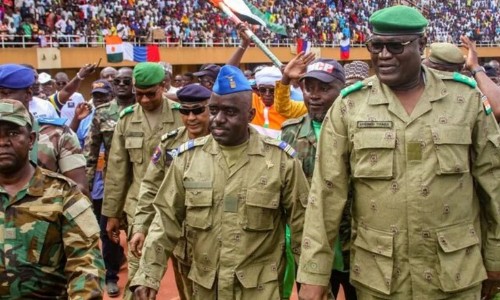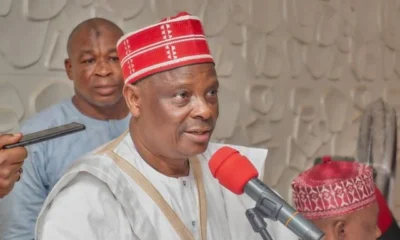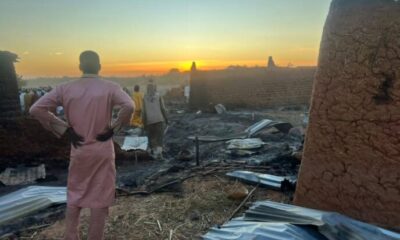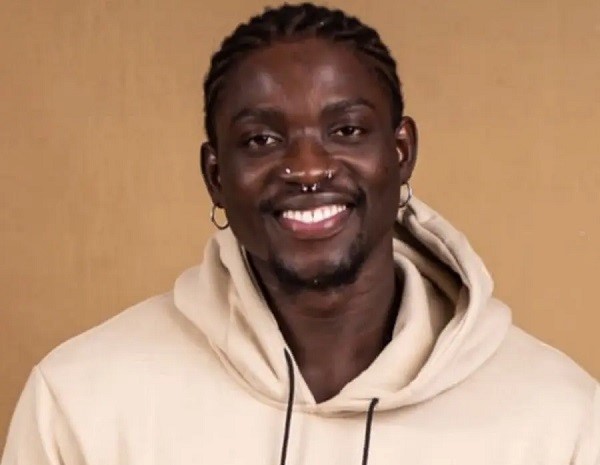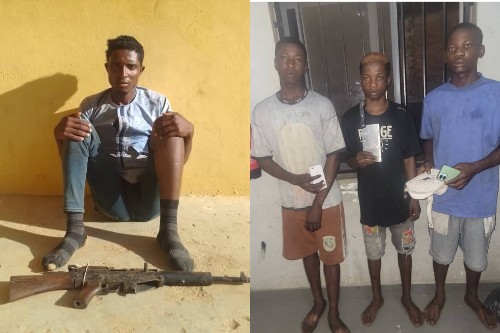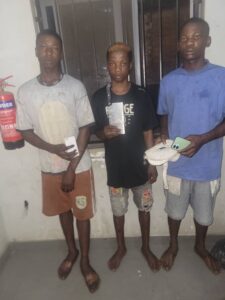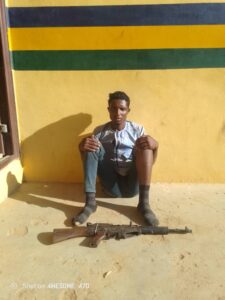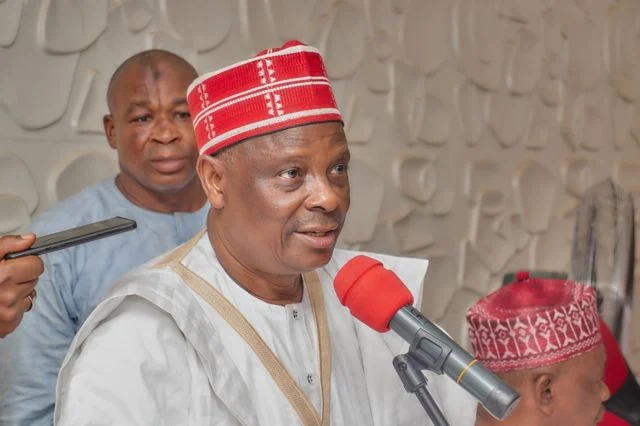The safety of ousted Nigerien President Mohamed Bazoum may not be guaranteed as the junta which overthrew his government has reportedly threatened to kill him should the Economic Community of West African States attempt any military intervention to restore democracy in the francophone country.
Two Western diplomats confirmed to the Associated Press on Thursday that the junta had told a senior American ambassador about their sinister plan to assassinate the ousted president.
The threat follows the ECOWAS’ decision to send soldiers to Niger after military leaders there refused to reestablish democracy despite the regional body’s sanctions against them and their allies.
Speaking under the condition of anonymity due to the delicacy of the matter, a Western military official claimed that during US Under Secretary of State Victoria Nuland’s visit to the nation on Monday, officials of the junta informed her about the danger to Bazoum.
According to AP, a US official confirmed the account, also speaking on condition of anonymity, because they were not authorised to speak to the media.
Bazoum, who was deposed on July 26, is being held hostage at his residence.
However, rising from a meeting of the ECOWAS Heads of States and Government in Abuja on Thursday, the President of ECOWAS, Omar Touray, said the bloc had directed the deployment of a “standby force” to restore democracy in Niger after the coup.
But Touray gave no details about the make-up, location and proposed date of deployment for the military intervention force.
Financing had been discussed and “appropriate measures have been taken,” he disclosed.
Reading the resolutions of the ECOWAS on the military junta in Niger at the end of the commission’s extra-ordinary summit, he also called on the African Union, partner countries and institutions to support the decision taken by the sub-regional body.
ECOWAS said all efforts made to hold dialogues with the military junta had been defiantly rejected by the coup leaders as they condemned the continuous detention of Bazoum and his family members.
Before taking the decision, the authority explained that it considered the memorandum presented by the President of the ECOWAS Commission on the current situation in the Republic of Niger, ECOWAS engagement since the last extraordinary summit; the reports of the envoys sent to Niger and various other places and recommendations of the ECOWAS Committee of Chiefs of Defence Staff.
It also extensively discussed the latest development in Niger since the last extra-ordinary summit was held on July 30, noting that all diplomatic efforts made by ECOWAS in resolving the crisis had been defiantly repelled by the military leadership, including the one-week ultimatum given for the restoration of constitutional order in Niger.
ECOWAS condemns coup
The ECOWAS President said the regional body decided as follows: ‘’Reiterates its strong condemnation of the attempted coup d’etat and the continued illegal detention of President Mohammed Bazoam, his family and members of his government
“Further condemns the condition in which President Bazoum is being detained and hold the CNSP fully and solely responsible for the safety, security and physical integrity of President Bazoum, members of his family and government.
“Uphold all measures and principles agreed upon by the extra-ordinary summit held on Niger on 30th July 2023; Underscore the determination of the ECOWAS authority to keep all options on the table for the peaceful resolution of the crisis.
“Enforce all measures in particular border closures and strict travel bans and assets freeze on all persons or groups of individuals whose actions hinder all peaceful efforts aimed at ensuring the smooth and complete restoration of constitutional order.’’
It further warned member states who by their action directly or indirectly hindered the peaceful resolution of the crisis in Niger about the consequences for their action before the community.
The body ‘’further call on all partner countries and institutions including the United Nations to support ECOWAS, in its effort to ensure a quick restoration of constitutional order, in conformity with its normative instruments.
“Direct the President of the Commission to monitor the implementation of the sanctions; direct the Committee of the Chief of Defence Staff to activate the ECOWAS Standby Force with all its elements immediately.
“Order the deployment of the ECOWAS Standby Force to restore constitutional order in the Republic of Niger; underscore its continued commitment for the restoration of constitutional order through peaceful means.”
In his remarks at the summit, the Chairman of the ECOWAS Authority of Heads of States and Government, President Bola Tinubu said no option was off the table, including the use of force as the last resort in resolving the Niger crisis.
“You will see from the communiqué of this extraordinary summit that no option is taken off the table including the use of force as the last resort. If we don’t do it, no one else will do it for us. We remain steadfast in our commitment to supporting Niger towards peaceful and democratic stability in the country,” Tinubu said.
The Nigerian leader while admitting that there will be challenges ahead, said that the collective resolve of the ECOWAS would navigate all obstacles for lasting peace and prosperity in Niger and other member countries.
He commended the leaders for their “unwavering commitment” to the sub-region and welfare of the African continent. The road ahead will undoubtedly have challenges but I firmly believe that with our collective resolve we can navigate these obstacles and chart a part towards lasting peace and prosperity for Nigeriens and ECOWAS.
“I send my sincere gratitude to all of you for your dedication and valuable contributions during this extraordinary summit. Your unwavering commitment to ECOWAS and the welfare of our continent is highly commendable.
“I want to thank you for your positive remarks and recognition given to me and the government and the people of Nigeria. May our collective efforts pave the way for a brighter future for Nigeriens and all Africans,” he added.
When asked when the defence chiefs in the region would meet, the Director, Defence Information, Defence Headquarters, Brig. Gen. Tukur Gusau, said ECOWAS would decide that and not the Defence Headquarters.
He said, “It is the responsibility of ECOWAS to convene such meetings, not DHQ.”
Notwithstanding the decision of the regional bloc to deploy troops against the junta, some Islamic clerics said they would, in the next few days, head for Niamey to interact with the military leaders through intermediaries.
The Ulamas led by Sheikh Bala Lau of Izalla group and Sheikh Abdurahman Ahmad of Ansar ud Deen had on Wednesday secured Tinubu’s approval to seek a truce with the junta in a bid to avoid bloodshed that could result from a military intervention in the Sahel country.
The Secretary-General of Jama’atu Nasril Islam, Prof Abubakar Aliyu, said the date for their departure had not been confirmed because the Islamic body had yet to hold its inaugural meeting.
He, however, explained that the plan of the Islamic clerics was to reach out to their counterparts in Niger, who could influence the junta on the need for the amicable settlement of the debacle.
The JNI scribe insisted on non-military solution, arguing that the use of force would further lead to the destruction of human and material resources.
He said, “JNI is fully part of the Islamic clerics to embark on emissary journey to Niger Republic but no date yet because we are yet to hold our inaugural meeting to spell out the modality. But we are hoping that in a couple of days from now, may be a day or two, from now.
“Our mandate is mediation between them and the Islamic clerics there who have a kind of understanding or influence on the coupists or military junta in order to get them to dialogue and see reasons for an amicable settlement of the debacle.
“We are insisting on non-use of force because it won’t yield any dividend. It’s unfashionable. Such force will only result to colossal waste of human and material resources.
“The deployment of the Economic Community of West African States Monitoring Group in Liberia and Sierra Leone entailed colossal loss of lives of our men and the level of money spent is unimaginable. Now, we are trying to curb internal security., we are unable to tackle that and we want to go into something else again.”
UN, US worry
Meanwhile, the US and the United Nations have expressed concern over the health and safety of the deposed president of Niger since the overthrow of his government on July 26.
The UN Secretary General, Antonio Guterres, said he was concerned about what he called the “horrible living conditions” of Bazoum and his family, who are still being detained by the coup plotters.
According to BBC Hausa, a spokesman for the Secretary-General reported Guterres as expressing great concern for the safety and life of Bazoum and his family, while he also called for the speedy release of the deposed president without any conditions and his return to power.
The decision came after a report by CNN, saying that the junta kept him in solitary confinement and forced him to eat rice.
However, Bazoum also sent a brief text message to a friend, explaining that he had been “without contact since Friday”, and was unable to get more food and medicine.
“We are very concerned about the health and safety of his life and that of his family,” said US state department spokesman Mathew Miller.
Miller added, “As time goes on, he is being held in an isolated location, and that is something we are concerned about.”
Also, Bazoum’s party, PNDS-Tarayya, in a statement also claimed that the ousted President and his family were denied access to drinking water and electricity.
Assessing the implications of war against Niger, retired Brig. Gen. Bashir Adewinbi said, “It is not unlikely that it might affect the ongoing war against insecurity in the country. Also, the border states to Niger may feel the impact as the junta may make an attempt to attack them.
“You know a war is not a child’s play. They would be looking for our weak links to make a point since we are the one closest to them and are culturally related. Do not also forget we have porous borders.’’
Group Captain Sadique Shehu (retd.) observed that the ECOWAS’ decision would have an impact on the ongoing war against insecurity in the country.
“Of course, there is an implication because Nigeria is the lead country. We are expected to provide equipment, funds and troops. We are also the ones most related to Niger. We have cultural and economic ties with them. Also, we have our security problems.
‘’It is common knowledge that we don’t have enough security operatives. Are we going to pull out from the North-East where they are fighting Boko Haram or the South-East where they are fighting IPOB? That is a problem on the president’s plate,’’ he concluded.
‘War not good’
Similarly, a former Commissioner of Police, Emmanuel Ojukwu, said the looming war does not look good for Nigeria, describing the proposed military intervention in Niger as ‘’a fratricidal war against our brothers in Niger.’’
He stated, “It does not speak well for us. We have a lot of issues of insecurity in our hands. Our military is overstretched having taken up more than it can chew on the internal security space. We are not winning the internal war, so taking up another one will lead to performance overload.
“Again, we share borders with many Francophone states, most of whom are sympathetic to the Niger cause, and they have the military ruling their spaces. I’m not sure they will take kindly to Nigeria flexing her military muscles on one of their own. They may attack us from any front to cause mischief and distract the push to Niger.’’
Warning against any form of military aggression against the Uranium-rich country, the former force spokesman added, “There will be a humanitarian crisis, refugees coming to Nigeria to worsen our poverty. Some criminal elements may join them, and worsen our security situation. They may even move down South and join other agitators.
‘’I’m opposed to any military action against Niger. They changed the government by force, which is not acceptable. But war is not acceptable either. The collateral damage will not help Nigeria. Our national interest should take priority over ECOWAS’ interest.”
A security expert, Timothy Avele, said the decision to engage the military junta would have an impact on Nigeria’s finances, adding that seven states bordering Niger could be destabilised.
He said, “It has more negative implications for Nigeria. Aside the financial burden it will impose on our lean resources, the seven states bordering Niger in the North will be destabilised with grave consequences.
“And no one knows how Niger will respond, Nigeria is within their target range. In fact, I can’t see what we stand to gain as a nation than proving we are the giant of Africa and the president wants to show he is not to be toyed with.”
A security analyst, Chidi Omeje noted, “The implication of the planned intervention is that the entire West African region would be destabilised, and there’ll be so much influx of refugees into Nigeria and other neighbouring countries.
‘’The implication of the declared activation of ECOWAS Standby Force by the ECOWAS leadership on Thursday is very dire, and it’ll manifest in a very short while, and this is because by the declaration, ECOWAS has declared war on Niger Republic, despite warnings and advice by well-meaning persons to ECOWAS to not intervene.
‘’The change in government in Niger doesn’t threaten the sub-region; coups had happened in Burkina Faso, Mali, and Guinea Conakry. This shows that this is a proxy war that is about to be fought on behalf of Western countries against their perpetual enemy, Russia.”
Katsina residents pray
But as the countdown to a military intervention in Niger begins, Katsina State residents hoping for a peaceful resolution of the crisis on Thursday convened a prayer programme to seek divine help.
The prayer session was held at the People’s Square, Government House, Katsina.
In attendance were Governor Dikko Radda, his deputy, Alhaji Faruq Jobe and the Secretary to the State Government, Alhaji Abdullahi Faskari, among others.
Islamic clerics and groups offered prayers and recited the Holy Quran during the two-hour session which began at 11am.
Radda in his remarks urged all Nigerians to pray for the amicable resolution of the crisis in the Niger Republic.
He also called for full support for President Tinubu and the ECOWAS as they worked to resolve the crisis.
The governor declared, “What we have been doing here this morning is to pray to the Almighty Allah to see to the peaceful and amicable resolution of the crisis in the Niger Republic.
“We are also calling on Allah to bring peace to our state and help us tackle banditry and other crimes.
“I urge us all to go back home and render full support for President Ahmed Bola Tinubu and the ECOWAS in seeing to the amicable resolution of the crisis in Niger Republic.”
He assured that the President was working hard to mitigate the hardships brought on poor Nigerians by the fuel subsidy removal.
He added that the state was ready to provide palliatives for “the poor of the poor “in the state to mitigate the hardships they were going through.
“Our palliatives would get to the poor of the poor in the state wherever they are,” he promised.
Radda also told the gathering that he would not negotiate with terrorists but instead tackle them this year.
He enjoined residents to volunteer credible information on the terrorists and other criminals to the security agencies, assuring of protection of the identity of the informants.
In a related development, the Kebbi State government has lauded the efforts of the ECOWAS to restore peace in Niger.
“I am sure the motive of ECOWAS was not to engage in war with Niger Republic but how to ensure peace reins in all its countries,’’ the Press Secretary to the Kebbi State governor, Ahmed Idris, emphasised in a phone interview on Thursday.
Meanwhile, the Social Democratic Party presidential candidate in the 2023 elections, Adewole Adebayo, has backed ECOWAS’s move to use military action to restore constitutional order in Niger,
Adebayo in a post on X on Thursday via @Pres_Adebayo, said ECOWAS was on the good side of history, adding that the Niger junta should surrender because they could rule without being elected.
Adebayo said, “I call on the junta in Niger to surrender now and return to the barracks under amnesty. You cannot rule unelected by Nigériens. @ecowas_cedeao is on the good side of history. Imperialism of the East is no remedy for imperialism of the West. African nationalism must be democratic.”
However, a former Kaduna lawmaker at the National Assembly, Shehu Sani, kicked against military action, saying Nigeria should not be dragged to war.
“ECOWAS communique is contradictory; Opting for dialogue and setting up a standby force. Our message to the leaders of West Africa is unambiguously clear; Do not drag us to war because of a coup in Niger Republic,” @ShehuSani said on X.
Credit: The Punch

 BIG STORY4 days ago
BIG STORY4 days ago
 BIG STORY4 days ago
BIG STORY4 days ago
 BIG STORY5 days ago
BIG STORY5 days ago
 BIG STORY2 days ago
BIG STORY2 days ago
 BIG STORY4 days ago
BIG STORY4 days ago
 BIG STORY1 day ago
BIG STORY1 day ago
 BIG STORY4 days ago
BIG STORY4 days ago
 BIG STORY4 days ago
BIG STORY4 days ago




